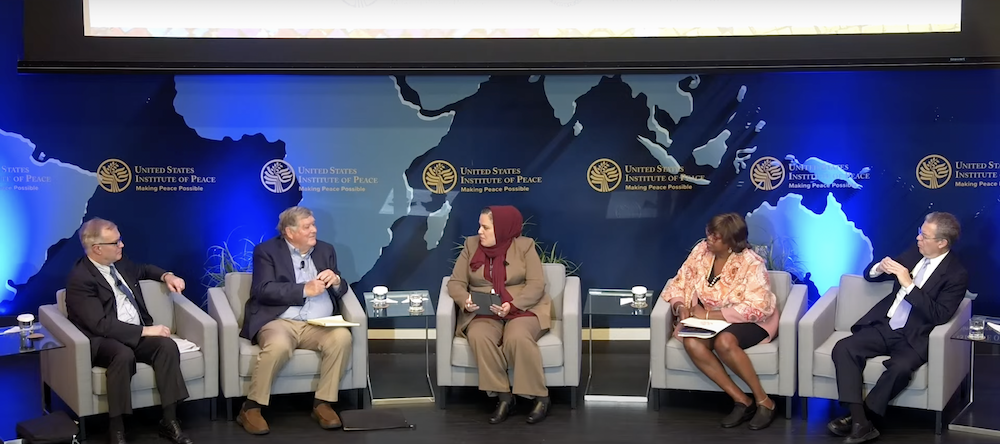WASHINGTON– Twenty-five years after the U.S. government enacted a law promoting international religious freedom, supporters of the act decried the rise of Islamophobic and antisemitic incidents within the U.S. following increased violence in Israel, Gaza and the West Bank.
The United States Institute of Peace hosted a panel Tuesday marking the 25th anniversary of the International Religious Freedom Act (IRFA), which affirms that people have “the right to believe or not believe as one’s conscience leads, and live out one’s beliefs openly, peacefully, and without fear.”
U.S. Ambassador-at-Large for International Religious Freedom Rashad Hussain said that “we’re also seeing the rise of hatred here in the United States,” mentioning both antisemitism and hate crimes against Muslims.
“We have been working to build bridges to counter antisemitism, to counter all forms of hatred, Islamophobia, here in the United States and around the world,” Hussain said.
Former Chair of the U.S. Commission on International Religious Freedom Katrina Lantos Swett addressed the fact that some people have expressed disappointment about the efficacy of the act in some areas of the world.
“I know that in some quarters, there has been disappointment that in the 25 years that IRFA has been in place, we have not seen substantial improvement in the state of religious freedom globally,” Swett said. She added that although this has led people to question the act’s efficacy, she disagrees.
“I think the problem has less to do with the shortcomings of IRFA and more to do with a lack of commitments to its meaningful prioritization and implementation,” Swett said.
Since the Oct. 7 Hamas attack, the Anti-Defamation League, an organization dedicated to stopping the defamation of Jewish people, recorded 312 antisemitic incidents from Oct. 7 to Oct. 23 across the U.S., with 190 of them being directly linked to the Israel-Hamas War. This is a 248 increase from the same time period last year.
From Oct. 7 to Oct. 24, the Council on American Islamic Relations, a Muslim advocacy and civil rights organization, received 774 complaints from Muslims across the U.S. Corey Saylor, the director of research and advocacy, said that on an average 16-day period in 2022, the organization would have received 224 complaints.
But the act hasn’t come up in Saylor’s work recently because of some shortcomings. He said that although the ambassador-at-large and the commission deserve credit for being “excellent and strong voices” in some situations regarding international religious freedom, the U.S. government’s priorities can create some limitations.
“Overseas, we [U.S.] often will prioritize trade and financial relations over our value of people being able to express their conscience, whether it be through religion, or through their political speech, in a manner that they are safe and free to do so,” Saylor said.
With Tuesday being the 25th anniversary of the International Religious Freedom Act, Saylor called on the U.S. government to more vigorously enforce religious freedom at home and abroad.
“I think the 25th anniversary is a good time for Congress and the executive branch to look at it and decide, is it doing what it was intended to do?” Saylor said. “And are there ways that we can strengthen the enforcement mechanism so it accurately reflects the values that America espouses both here and abroad?”

